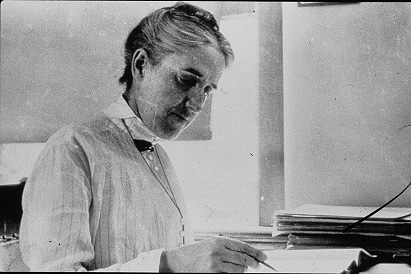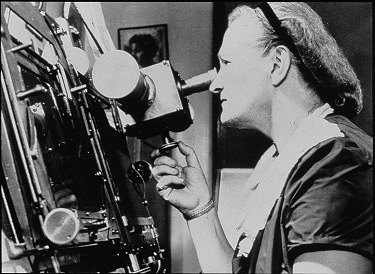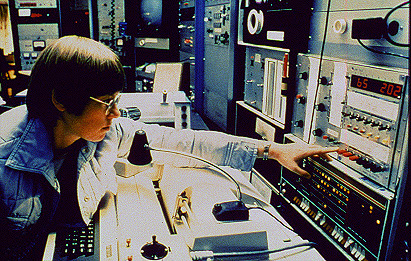
|

|

|
Women in Astronomy |
| It is no news that the fraction of women in Physics and Astronomy is much smaller than the fraction of women in the population. The reasons are mainly historical, though the debate as to exactly why that is ranges from learned to plainly sexist. |
| In my experience as a professional astronomer, women do work in a different way than men. It is hard to list the differences without incurring in the wrath of some, so let me write about one particular event in my life which summarizes my she-physicist vs. he-physicist experience. |
| Once my physicist husband Nic and I were trying to fix some problem or other to do with installing the Linux OS on our home computer. As many will recall, this was far from simply in the early days of Linux. Nic, was swearing and furiously typing as the poor machine was making more and more beeping sounds. I was sitting back with the Linux Manual. A few minutes later, I tapped on frantic Nic's shoulder and pointed out a line in the manual which seemed to have something to do with the problem at hand. He tried it and the problem was fixed. This is not to say that I (woman) am better, but rather that women's approach to problems can be different. It is also not to say that the "manual" approach is always better, as manuals are thick and reading them can be time consuming. Sometime the "monkey" typing approach comes up with results much faster. I will leave it at that, and move on to my next issue. |
| The next issue is that it is exactly because men and women are different that the best way forward for Physics is collaboration. But there cannot be collaboration if there are no women in the field. Or if there are so few that they spend more time thinking how to be integrated and avoid sexism than working. So, how do we attract more women to Physics? And here is where I and where many other men and women come in to bridge the gap. |
| Many believe that affirmative action is one way forward to bring women to the field of Physics and Astronomy. There are good reasons to think this is the case. Personally, I have been a little skeptical. In particular I am afraid of the stigma which will affect ALL women physicists if affirmative action becomes the rule. My preferred action has been to talk to school-age girls who have an interest in science and encourage them to take it up, to persevere, not to let go, and, overall, not to listen to anybody who tells them that they will never be as good as guys (and, yes, this happens regularly). |
| Of late, I have given more thought to the issues surrounding affermative action. My best freind Geoff Clayton has always been adamant that affermative action is a valid and powerful tool to build a demographic which will ultimately benefit the field and hence, in the end, the individuals that make it up. The second person I came across who makes persuasive arguments in favour of affermative action, is Michael Moore in Stupid White Men - he does so in his usual style, yet, as always, he gives food for thought. Last, I have talked today to an astronomer here at Kitt Peak observatory. His name is Keivan Stassun, and he is, among other things, editor of the newsletter Spectrum for the committee of status of minorities in astronomy (produced by the American Astronomical Society). Two things struck me of what he (and others) say: the first is that the paramters that decide merit rather complex and often discriminative. Overall though talking to him made me think about just how complex the whole concept of affermative action is, and how diminutive it can be to just lable it as a system that promotes unworthy individuals into college and job positions. <\td><\tr> |
| Anyway, returning to my activities, when I was at UCL I used to help with a great program called "Women and Physics" aimed at 16 year olds. This became very successful and many of the girls later applied to study Physics and Astronomy at UCL. Here in New York I have been giving workshops at the Sonia Kovalevsky Mathematics day, a great event hosted by St. John's University in Queens, NY. This is only a start as I plan to use Museum's resources to become more active in this area. |
| Last, here is a great web site and a powerful effort to address the issue of women in Astronomy: the Committee on the Status of Women of the American Astronomical Society. |

|

|

|
Last Update: 15 May 2003